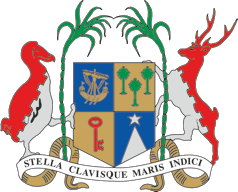PUBLIC SERVICE COMMISSION/
DISCIPLINED FORCES SERVICE COMMISSION
Guideline to assist candidates coming to PSC/DFSC for interviews
INTRODUCTION
The interview can be a decisive factor in the highly-competitive selection process. It is noted that many candidates come unprepared to the interview and thereby lose their chance. The following suggestions may be useful for candidates’ guidance:-
Prepare yourself carefully
You should read the Scheme of Service for the post and make sure you understand its responsibilities.
In addition, keep yourself informed about Government policy for the sector, and about the functions of the Ministry/Department within which is found the post. Such information may be available from the Ministry’s website.
Resumé of your work experience
Take some care in preparing the resumé of your work experience (curriculum vitae) – in your application form. This will be helpful to the Panel in orientating its questions, taking into account your relevant skills and work experience.
Starting the Interview
As a start, you will usually be asked to introduce yourself and to speak about your work experience, if any. This enables the Panel to learn about you. Be concise, but bring out any experience or skill you have acquired which are relevant to the post you have applied for.
A good start on your part can create a good first impression.
Use your time wisely
The time of the interview is the time given to you to show yourself at your best. Besides your qualifications, you will be assessed on your personality, your experience, your communication skills as well as on your general aptitude for the post. For higher posts, you will be expected to show that you have the required management and leadership skills – if you have experience, make sure that this is translated in the maturity of your thinking and in the quality of your answers.
Giving irrelevant answers and taking the wrong approach only mean that you may be wasting your opportunity.
Answering Questions
(a) Listen attentively to the questions. Articulate your answers and give your views clearly. Giving mere satisfactory answers is not enough. The Panel will expect you to show that you can analyse problems and situations and also present your views in a logical manner.
(b) Very often, the Panel will test your intellectual ability to ‘think out’ hypothetical problems or situations. Don’t be put off. In such cases, you should understand that the Panel is more interested to see how your mind works and how it tackles problems of a given type, rather than the answer itself. Take your time and explain calmly your reasoning step by step. Show your ‘thinking process’. This is the essence of such exercises.
Don’t forget
The selection process is highly competitive. The number of candidates usually far exceed the number of posts on offer. You have to convince the Panel that not only you are amongst the most qualified but also that you are amongst the most suitable for the post.
Communicating effectively
In an interview, communicating effectively is a very important factor. Be self-confident and express yourself freely but avoid being arrogant. Reply calmly. If you do not agree with a view, please say so and explain calmly your reasons. More often than not, this will go to your credit. On the other hand, if you do not know the exact answer to a specific question, don’t hesitate to say so. This is better than trying to beat about the bush.
Always be polite. Be yourself. Don’t show impatience. Showing grace under pressure is a good sign of character.
The Spirit of Public Service
Don’t forget that the spirit of public service remains an enduring value. Self-motivation, enthusiasm and the drive to take things forward or to change things for the better, are qualities that are always appreciated. Show your sense of commitment. Always adopt a positive approach to life-experience at large.
It is never a good thing to create the impression that you are choosing the job for strictly materialistic reasons: transport convenience, the pay packet or fringe benefits etc.
Dress neat and tidy
Finally, please dress simply but appropriately – never casually. A small detail that tells a lot about you!
Original Certificates and other supporting documents
It is absolutely important for you to bring all the documents requested for in your letter of convocation, such as original certificates, supporting documents with regard to your work experience etc. You are required to present these to the Panel, before the interview starts.
Conclusion
In conclusion, a good interview should resemble a fruitful dialogue. It is an opportunity for you to show yourself at your best, especially if you have taken the trouble to prepare for it. At the very least, this self-preparation will give you a good dose of self-confidence to start with.
6 October 2006
